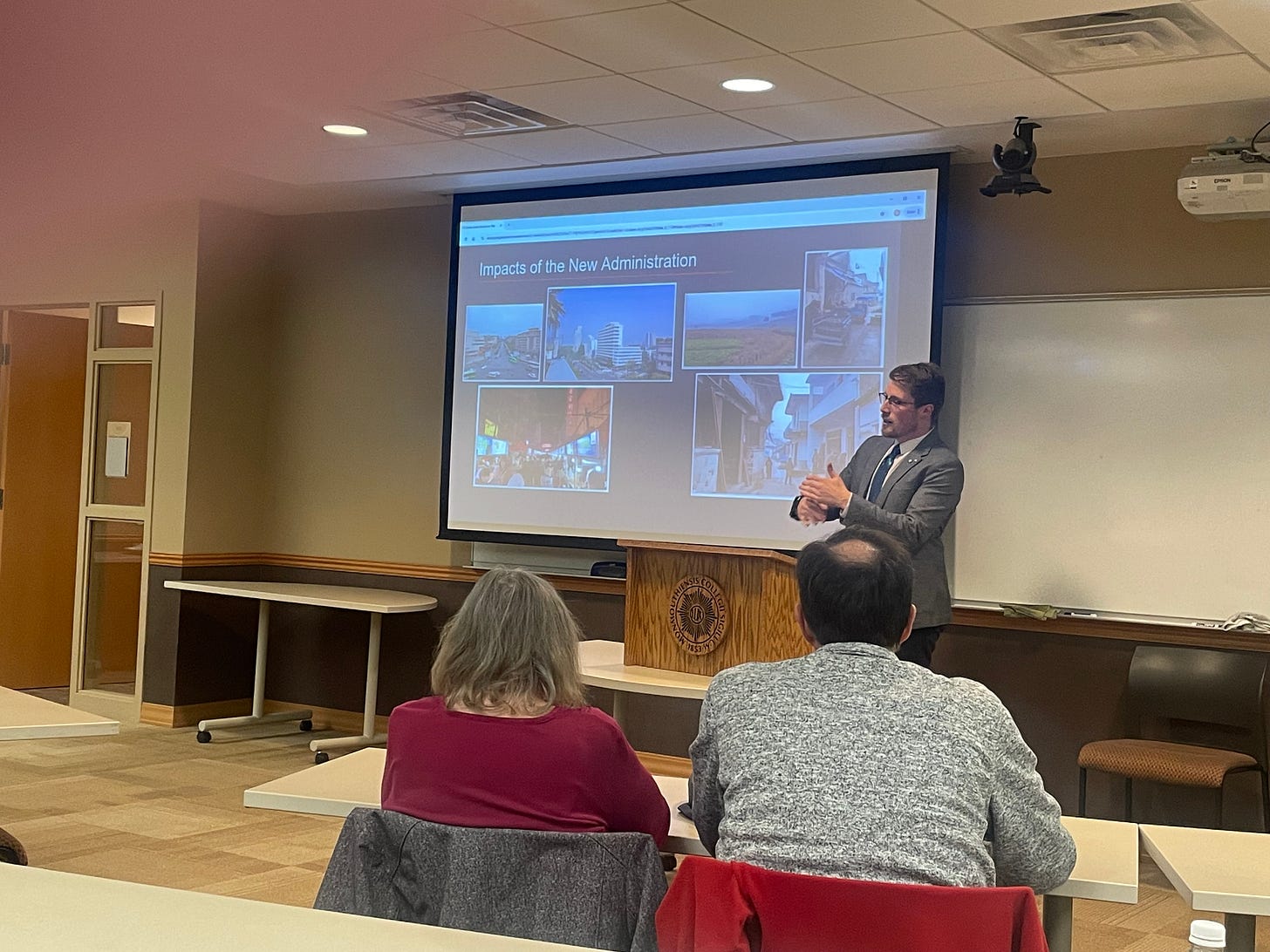Monmouth native John Glasgow returned to his hometown to lead a Great Decisions discussion on US-China relations, offering insights into the complexities of the two global powers' interactions. A graduate of Macalester College with a background in Chinese Language and Political Science, Glasgow shared firsthand experiences studying in China and knowledge of the country's political and economic landscape.
Glasgow began by emphasizing his motivation on the topic. “My mission is really to give back to the people and places that raised me,” he said. “I’ve had this incredible opportunity to learn another language, visit another culture, visit another country. So, I’m just incredibly honored to share back with that when I can.”
A key topic Glasgow discussed was the economic repercussions of China’s one-child policy. He explained how the policy in effect for decades led to an aging population and a shrinking workforce which poses significant challenges for the country’s economy. He examined Xi Jinping’s leadership, describing his governance as authoritarian. Glasgow then highlighted the consolidation of power in the Chinese government under his rule.
On China's welfare system, Glasgow pointed to its successes, like lifting millions of people out of poverty. However, he acknowledged the criticisms of the system such as regional disparities and concerns over government control.
Glasgow addressed the strained relations between China and the West, particularly the United States. He discussed how economic pressure, including tariffs, has been a tool used by Western countries to counter China’s growing influence. “Recently after COVID, the Chinese government has actually made it easier as an American to go visit because they want American tourists,” he said. “It boosts up their economy and supports their good image strategy.”
When asked about the possibility of China transitioning to a democratic system in the future, Glasgow remained cautious in his prediction. “Anything’s possible,” he said. “I think right now, everything outwardly looking seems like they are pretty stable in their system, but there has been limited democracy in the past. It’s a word and a concept that they’re familiar with. So, I don’t know. I think it would be safer to project what they have now into the future. But who knows? It’ll be up to them to decide.”


